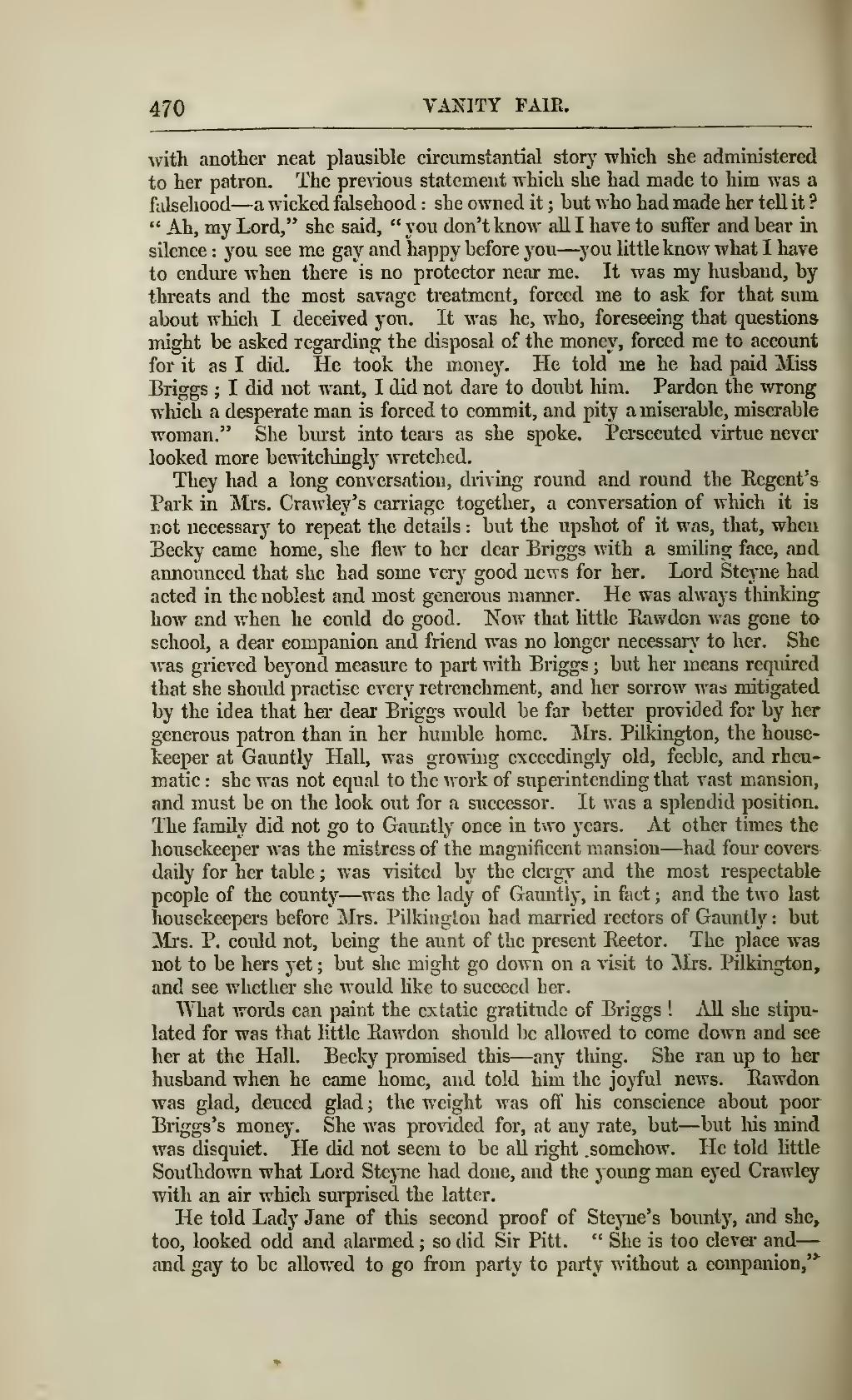with another neat plausible circumstantial story which she administered to her patron. The previous statement which she had made to him was a falsehood—a wicked falsehood: she owned it; but who had made her tell it?
"Ah, my Lord," she said, "you don't know all I have to suffer and bear in silence: you see me gay and happy before you—you little know what I have to endure when there is no protector near me. It was my husband, by threats and the most savage treatment, forced me to ask for that sum about which I deceived you. It was he, who, foreseeing that questions might be asked regarding the disposal of the money, forced me to account for it as I did. He took the money. He told me he had paid Miss Briggs; I did not want, I did not dare to doubt him. Pardon the wrong which a desperate man is forced to commit, and pity a miserable, miserable woman." She burst into tears as she spoke. Persecuted virtue never looked more bewitchingly wretched.
They had a long conversation, driving round and round the Regent's Park in Mrs. Crawley's carriage together, a conversation of which it is not necessary to repeat the details: but the upshot of it was, that, when Becky came home, she flew to her dear Briggs with a smiling face, and announced that she had some very good news for her. Lord Steyne had acted in the noblest and most generous manner. He was always thinking how and when he could do good. Now that little Rawdon was gone to school, a dear companion and friend was no longer necessary to her. She was grieved beyond measure to part with Briggs; but her means required that she should practise every retrenchment, and her sorrow was mitigated by the idea that her dear Briggs would be far better provided for by her generous patron than in her humble home. Mrs. Pilkington, the house-keeper at Gauntly Hall, was growing exceedingly old, feeble, and rheumatic: she was not equal to the work of superintending that vast mansion, and must be on the look out for a successor. It was a splendid position. The family did not go to Gauntly once in two years. At other times the housekeeper was the mistress of the magnificent mansion—had four covers daily for her table; was visited by the clergy and the most respectable people of the county—was the lady of Gauntly, in fact; and the two last housekeepers before Mrs. Pilkington had married rectors of Gauntly: but Mrs. P. could not, being the aunt of the present Reetor. The place was not to be hers yet; but she might go down on a visit to Mrs. Pilkington, and see whether she would like to succeed her.
What words can paint the extatic gratitude of Briggs! All she stipulated for was that little Rawdon should be allowed to come down and see her at the Hall. Becky promised this—any thing. She ran up to her husband when he came home, and told him the joyful news. Rawdon was glad, deuced glad; the weight was off his conscience about poor Briggs's money. She was provided for, at any rate, but—but his mind was disquiet. He did not seem to be all right somehow. He told little Southdown what Lord Steyne had done, and the young man eyed Crawley with an air which surprised the latter.
He told Lady Jane of this second proof of Steyne's bounty, and she, too, looked odd and alarmed; so did Sir Pitt. "She is too clever and—and gay to be allowed to go from party to party without a companion,"
